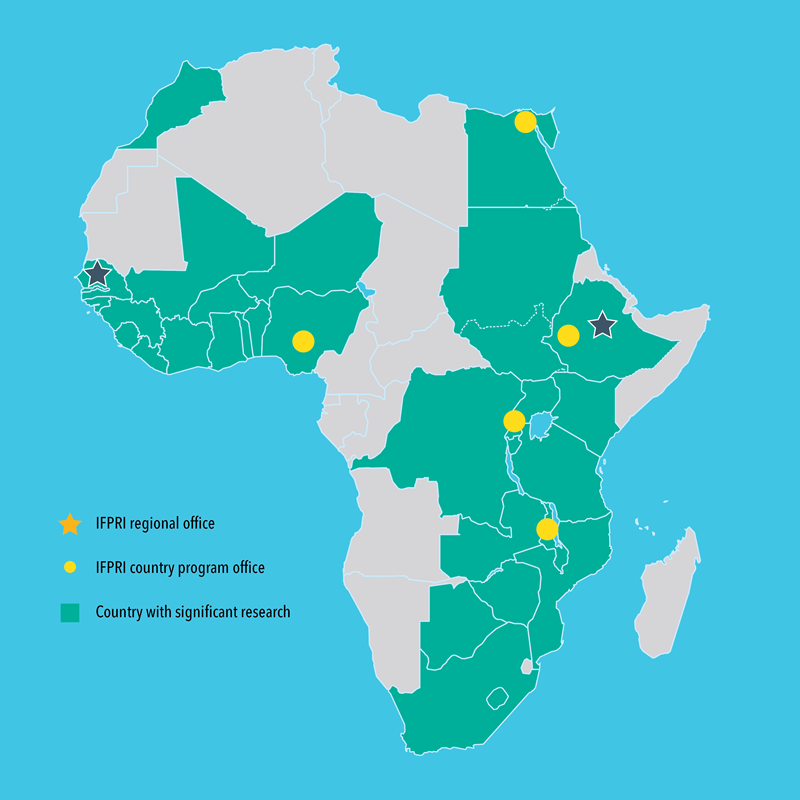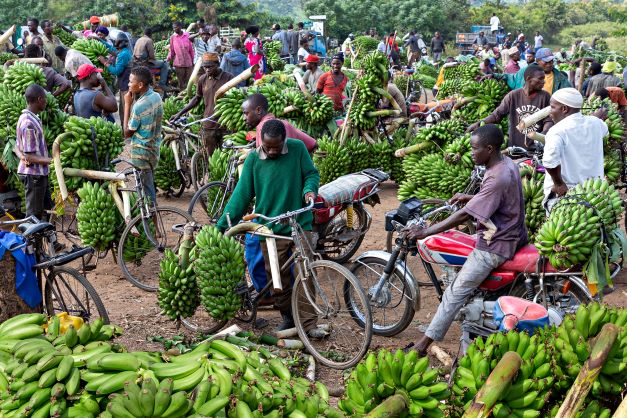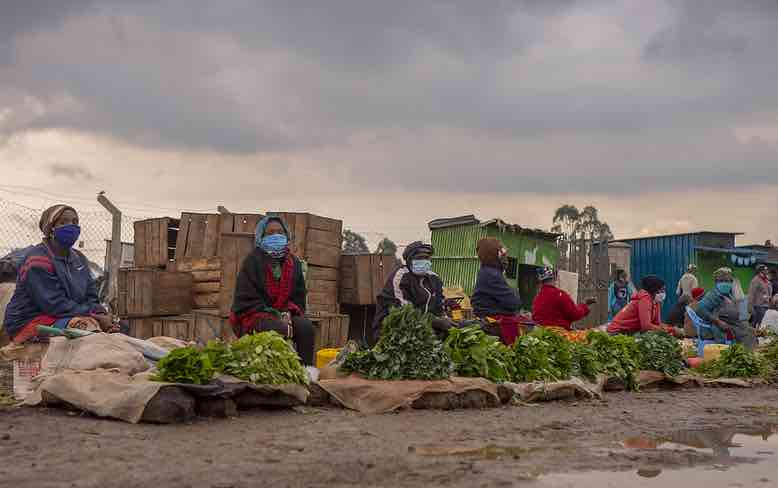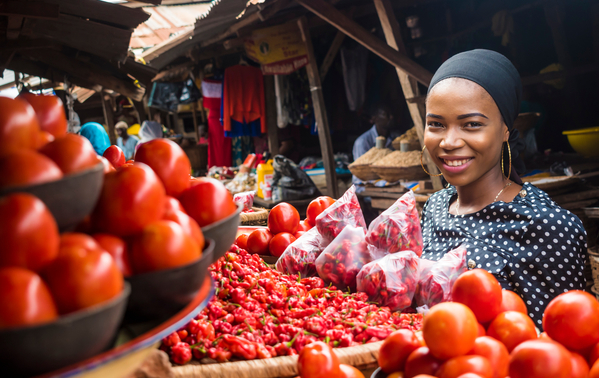
To accelerate development and poverty reduction in Africa, decision makers need to make strategic policy and investment choices, often with limited resources and technical tools to guide them. They must do so judiciously by setting priorities and understanding the trade-offs and linkages between different goals. They need to understand not only the factors that drive economic development but also how this knowledge can be incorporated into strategies to achieve different development goals. It is within this context that IFPRI’s work in Africa provides research-based solutions that contribute to food systems transformation in line with the continent’s development agenda to sustainably reduce poverty and end hunger and malnutrition.
Several of the development challenges facing many countries in Africa—revealed in low agricultural productivity and growth, high levels of poverty, food and nutrition insecurity, and poor environmental health—derive from factors that require a food systems approach to development policy planning and implementation to effectively solve them. Thus, IFPRI’s work in Africa is designed to use research and innovation to stimulate new thinking about the development process through a food systems lens by identifying development pathways that bring coherence across policies and actions at various levels of government, analyzing the strategic options available to countries to achieve specific development outcomes, and strengthening the strategic planning and implementation processes through which countries can achieve these outcomes.
To support countries in transforming their food systems to be sustainable, equitable and provide healthy and nutritious foods for all, IFPRI’s work in Africa is built around five key research themes (technological, institutional and policy innovations; resilience of food systems; intra-African trade and economic integration; national strategies and public investment; and capacity strengthening), all of which integrates gender and political economy issues, as well as data for evidence-based decision making.
At the country level, IFPRI’s on-the-ground presence through its Country Programs facilitates close partnership with key state and nonstate food systems stakeholders, enabling IFPRI to respond to country priorities in line with regional, continental, and global initiatives and build inclusive policy processes. IFPRI adapts its research approaches to respond to country priorities and different country contexts by building on existing work and capacities in the country, and working in close collaboration with national partners and policymakers in setting priorities and disseminating results from the research-based activities.
The activities at the regional level focus on building evidence, tools, and capacities on intra-African trade and economic integration, working in close collaboration with the regional economic communities, regional networks, and donors and nongovernmental organizations operating at the regional.
At the continental level, IFPRI works with partners such as the Africa Union, the UN Economic Commission for Africa, Regional Economic Communities and others to strengthen inclusive policy processes such as the CAADP biennial review and implementation of the continental free trade agreement (CFTA).
At the global level, IFPRI’s work focuses on sharing the experiences of Africa’s development and food systems transformation for mutual learning and supporting dialogues to integrate Africa’s development challenges and issues into relevant global agendas and attract the resources that contribute to addressing the challenges and accelerate Africa’s food systems transformation.



